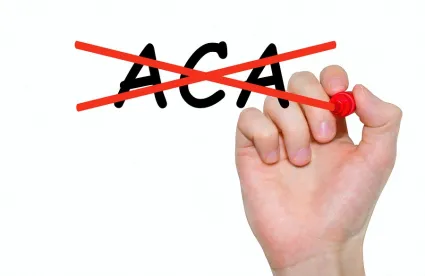On March 6, the US House of Representatives Committee on Ways and Means and Committee on Energy and Commerce released long-awaited official proposed legislative language addressing the repeal and replacement of the Affordable Care Act (ACA). As with the unofficial language leaked during the Presidents Day recess (addressed here), this proposed language—known as the American Health Care Act (AHCA)—contemplates using the 2017 budget reconciliation process, which will allow the bill to avoid a filibuster by Senate Democrats.
In contrast to the leaked language, the AHCA does the following:
-
Drops language intended to tax participants on the value of health coverage that falls above the 90th percentile of all plans
-
Retains the Cadillac Tax—but postpones it until January 1, 2025 (however, it may yet be repealed by the Senate)
-
Delays most ACA tax repeals until January 1, 2018 (likely for revenue scoring purposes)
-
Delays health savings account, health reimbursement account, and flexible spending account changes until January 1, 2018 (likely for revenue scoring purposes)
As foreshadowed by the leaked language, the AHCA also:
-
Zeroes out the individual and employer ACA mandates as of January 1, 2016
-
Retains the current ACA exchanges, with modifications, through 2019
-
Creates an advanceable, refundable tax credit for individuals who are not eligible for employer health (and other) plans, which ranges from $2,000 to $14,000 (based on age and family structure) beginning in 2020. However, in a nod toward deficit-conscious House Republicans, the tax credit now phases out at higher income levels.
The AHCA also calls for continued employer reporting related to exchange qualification requirements and adds reporting on IRS Form W-2 beginning in 2020 to administer the new AHCA tax credit. The US Department of the Treasury is expected to end enforcement of the existing employer reporting once the new Form W-2 reporting begins.
Both House committees will hold hearings on the proposed legislative language on Wednesday, March 8. Employers should watch to see whether the proposed language survives the hearing unchanged or whether additional changes are necessary to secure sufficient Republican votes at the committee or full House level.
Once passed by the House, the legislative language then moves to the US Senate, where the razor-thin Republican majority may force further changes necessary to secure the required Republican votes.



 />i
/>i

